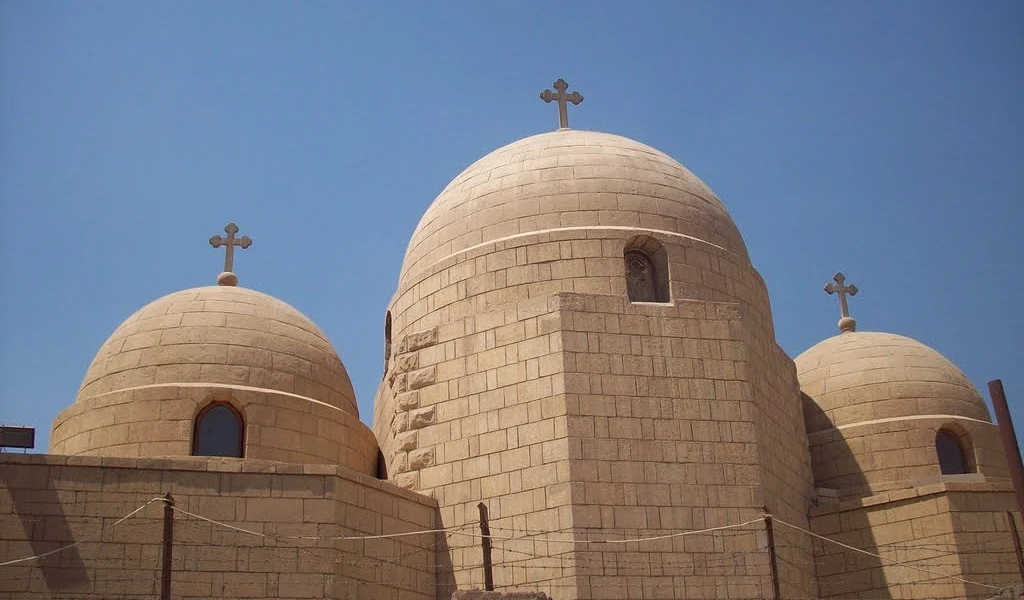Egypt: Extremists burn Christian homes after attempt to build church
In Egypt’s Minya province, attackers on Tuesday set fire to the homes of several Christians while their occupants were still inside them. The incident was the latest in a series of attacks on Christians in Minya in recent months.

Egypt is home to around 10 million Christians – most of them Coptic Orthodox. csi
At 11:23 pm on Tuesday night, Bishop Macarius, the head of the Coptic Orthodox Church in Minya province, wrote in a post on X that “extremists” had set fire to “a large number of homes” of Coptic Christians in the village of al-Fawakhir, and that they were preventing people from leaving the burning houses.
Three hours later, the bishop stated that security forces had finally arrived, brought the situation under control, and arrested the “instigators and perpetrators.” The bishop stated that, “State agencies will compensate those affected” by the attacks.
“May God protect our beloved country Egypt from all harm,” he added.
Attacks stop church construction
A source in the Coptic Orthodox Church told The New Arab that the violence had been sparked by an attempt to build a new church in the village, which was met by “the violent rejection of their Muslim neighbors.”
The attack was not an isolated incident. According to the advocacy group Coptic Solidarity, the attack bears “a striking resemblance to previous incidents in the same governorate, including those in Al-Khaiyary (September 2023), Manzafat Zaafarana (January 2024) in Abu Qurqas, and Al-Azib (December 2023) in Samalut.” In each of these attacks, the attackers successfully prevented the construction of a church.
Anti-Christian violence in Egypt is often sparked by rumors that Christians are trying to build or repair their churches. This hostility reflects traditional prohibitions on church construction in Islamic shari’a law. In Egypt, for many decades, building or even making simple repairs to churches required presidential approval.
Extremist violence
A 2016 law purported to regularize the approval process for church construction, but as the Egyptian Initiative for Personal Rights reports, the law has largely failed either to make it easier for Christians to build churches or to prevent attacks sparked by church construction.
In December 2022, for example, a mob attacked a church and Christian homes in a village in al-Beheira province, after the local council tried to restore the church’s decaying roof. Shortly afterwards, the authorities ordered Christians to stop repairing the church.
Egypt’s Coptic Orthodox Church traces its origins to St. Mark, and Egypt is home to around 10 million Christians – more than any other country in the Middle East. But Egyptian Christians have faced increased violence and discrimination since the 1970s, when the Egyptian government took steps to Islamize the state and began promoting Islamic extremist groups.
The violence reached a peak between 2011 and 2018, when jihadists burned dozens of churches and murdered hundreds of Christians. In the worst of these attacks, on Palm Sunday 2017, two suicide bombers killed 45 Christians at worship in churches in Tanta and Alexandria. Bishop Macarius himself survived an assassination attempt in 2013.
Persecution of Christians
Egypt’s president, Abdel Fattah al-Sisi, came to power after overthrowing the Muslim Brotherhood government in July 2013. Sisi has portrayed himself as a protector of Egypt’s Christians, and outright massacres of Christians have become rare in recent years.
But Christians still face persecution in a number of forms. One of the most sinister is the abduction, forced marriage and forced conversion of Christian women and girls by Islamic extremists. CSI published some of the first studies on this phenomenon in 2009 and 2012.
In January this year, a 21-year-old Christian woman named Irene Ibrahim Shehata disappeared in the midst of her mid-term exams. Her family was later told by police that she had married a Muslim man and converted to Islam of her own free will.
According to Irene’s father, her only communication with her family since her disappearance was a phone call with one of her brothers, who heard Irene crying, before the phone was yanked away and a man’s voice said, “Okay, you heard her voice and know she’s okay, right? Now go to hell!”